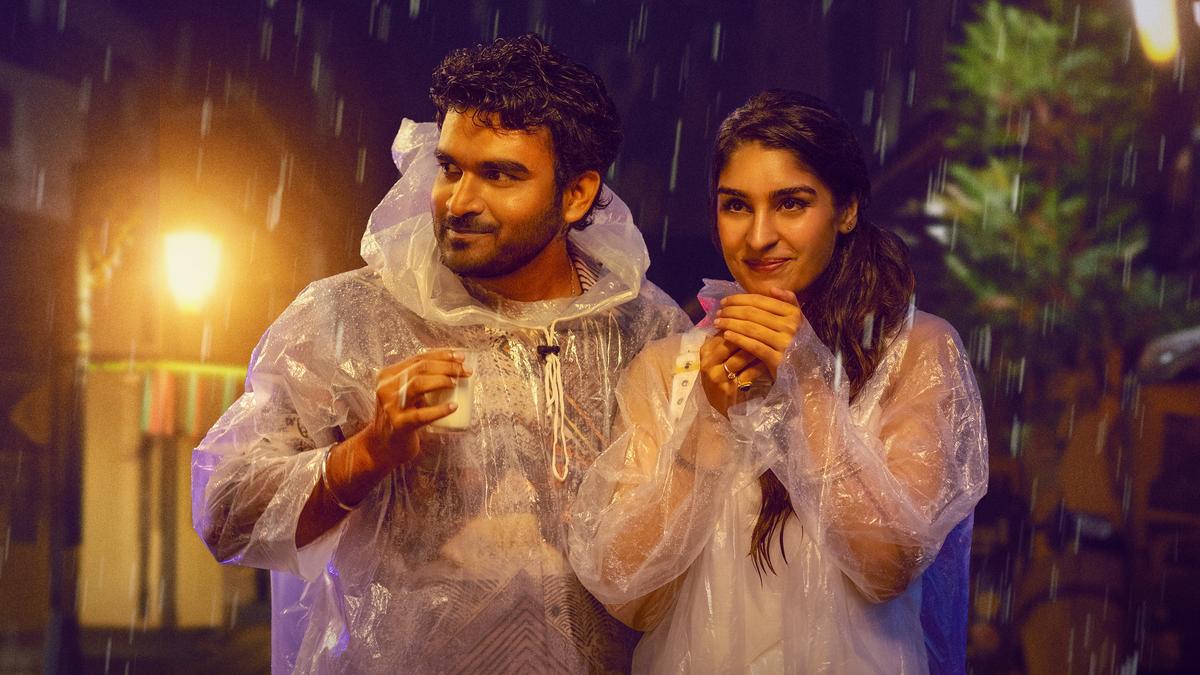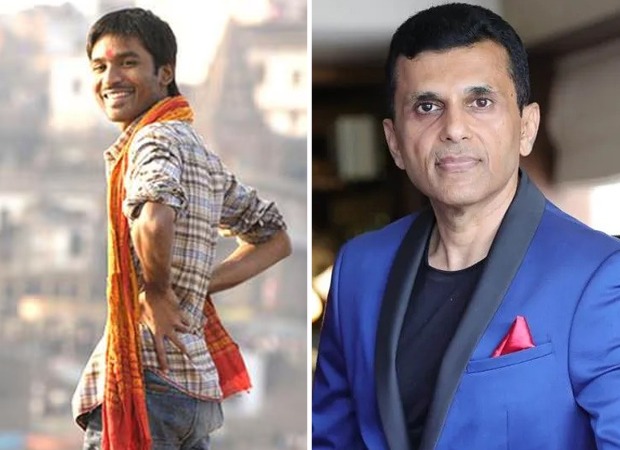
Kiran Abbavaram and Yukti Thareja in the film
| Photo Credit: Special Arrangement
If you meet K Ramp’s protagonist Kumar Abbavaram (played by Kiran Abbavaram), you would not want to bump into him again. He is entitled, born with a silver spoon, and gives up on studies because his father is already well to do. He has supposedly simple desires — wear a lungi and head out to a bar with friends, sip local beer, and groove to mass numbers.
When he falls for a girl, Mercy (Yukti Thareja), he does not say ‘I love you’. He states, ‘Naa Peru Abbavaram… Istha neeku varam.’ (I am Abbavaram, let me do you a favour). He calls her a ‘heavy figure’ for having a big heart and bailing him out after getting too drunk. His father sends him to Kerala because he has had enough of him.
Kumar has a textbook ‘tharki’ uncle (played by Naresh), who ogles at women and tries to make a pass at them by touching their waistlines. He is after a lady, whose sensation gives him a shock (a.l.a Magadheera, with a lustful twist).
Despite Kumar’s traits, the film does not treat him as the problem. The film wants us to believe that he is a bechara trapped by a girl with a disorder (PTSD – post traumatic stress disorder). After establishing all the traits of the ‘ideal’ hero and his romantic (read drunken) escapades in the first hour, the film moves on to the girl’s problem — trust issues, more than anything else — and a flashback that hopes to leave viewers teary-eyed.
K Ramp (Telugu)
Director: Jains Nani
Cast: Kiran Abbavaram, Yukti Thareja
Runtime: 140 minutes
Story: A wayward youngster comes to terms with his partner’s medical condition.
Mercy keeps cutting her wrists as a trigger response, and threatens to end her life when anyone doesn’t live up to their word. When they consult a doctor, the latter hopes to decode the intensity of her problem by offering a suggestion to Mercy’s uncle: ‘When a plan does not materialise as per her terms, why don’t the entire family threaten to commit suicide and judge her reaction?’ It cannot get more ridiculous in the context of mental health.

Though the premise is centred on Kumar coming to terms with Mercy’s shaky mental health, the second hour becomes all about Kumar being the ‘saint’ for empathising with the girl. The only intermittent relief comes from a comedy track involving Vennela Kishore, who verbalises a viewer’s frustration with the film with his angsty, caustic responses.
In between the lecture on mental health and making a mockery of the woman’s condition, the obsession with the midriff continues. Director Jains Nani writes a scene around ice and piping hot sambar to compare the waistlines of two women. For a film promoted as a family entertainer, K Ramp is embarrassing in how it passes off casual misogyny as humour.
If the idea was to rehash Maruthi’s oft-used blueprint for a film — a situational comedy around a character’s health condition — they could have done it with sincerity. Kumar’s characterisation is an unfortunate byproduct of some of the earlier films that romanticised the problematic behaviour of men.

One presumed Kiran Abbavaram was on course-correction mode with KA last year, but films like Dilruba and K Ramp again underline his desperation to be a mass hero, instead of honing his acting mettle. Yukti Thareja appears clueless in a role reduced to a victim. Naresh’s character is the exact opposite of aging with grace, though the actor’s comic touch is intact.
Both Sai Kumar and Muralidhar Goud are sincere despite being cast in mediocre parts. Chaitan Bharadwaj’s music is forgettable. The cinematography feeds on the perversions of the pivotal characters with odd camera angles.
K Ramp may be a film about a health problem, but the real issue is in Telugu cinema’s insensitivity in portraying mental health and the fixation with perverse men positioned as heroes.
Published – October 18, 2025 03:16 pm IST



